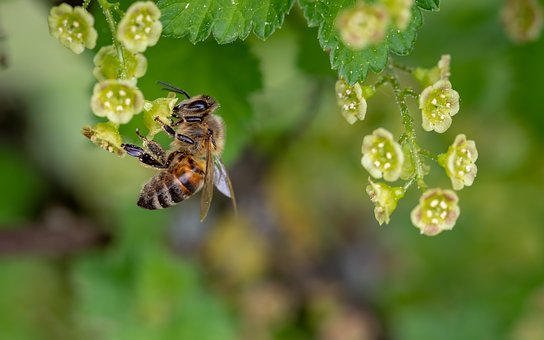
A new study published in the journal Annals of the Entomological Society of America has revealed that bees behaved in a very weird manner during the solar eclipse that streaked across the United States on August 21, 2017.
The research found that bees took a break from their usual busy day during the eclipse and they hibernated themselves for unknown reasons.
During the research, the team set up microphones in beehives to test how these insects would react when sunlight is almost shut down. The research team believed that bees will move slower as they do when the Sun begins to set in the sky each day before chilling out for the night in their hives. However, that did not happen and until the solar eclipse reached the totality, bees were completely active and they did not show any signs of slowing down.
But when the sun got totally blocked by the moon, things took an unexpected turn, as the bees immediately shut down their activities, and entered the sleeping mode. The bees continued in this low energy mode until the eclipse got over.
"We anticipated, based on the smattering of reports in the literature, that bee activity would drop as the light dimmed during the eclipse and would reach a minimum at totality. But, we had not expected that the change would be so abrupt, that bees would continue flying up until totality and only then stop, completely. It was like 'lights out' at summer camp! That surprised us," said Dr Candace Galen, a researcher at the University of Missouri who led the study in a recent statement.
Interestingly, the findings were consistent all across the country. Even though researchers were not able to distinguish between the bee species that showed this weird behaviour, they revealed that most bees that were monitored were honey bees and bumble bees.
As the result was totally unexpected, scientists are still clueless about the factors which compelled the bees to embrace a complete shut down during the solar eclipse.
A few months back, a team of researchers from France and Australia has found that bees can understand the concept of zero. Prior to this finding, scientists believed that insects like bees have very less cognitive abilities and the only animals capable to understand the concept of zero were monkeys, dolphins and some birds.








